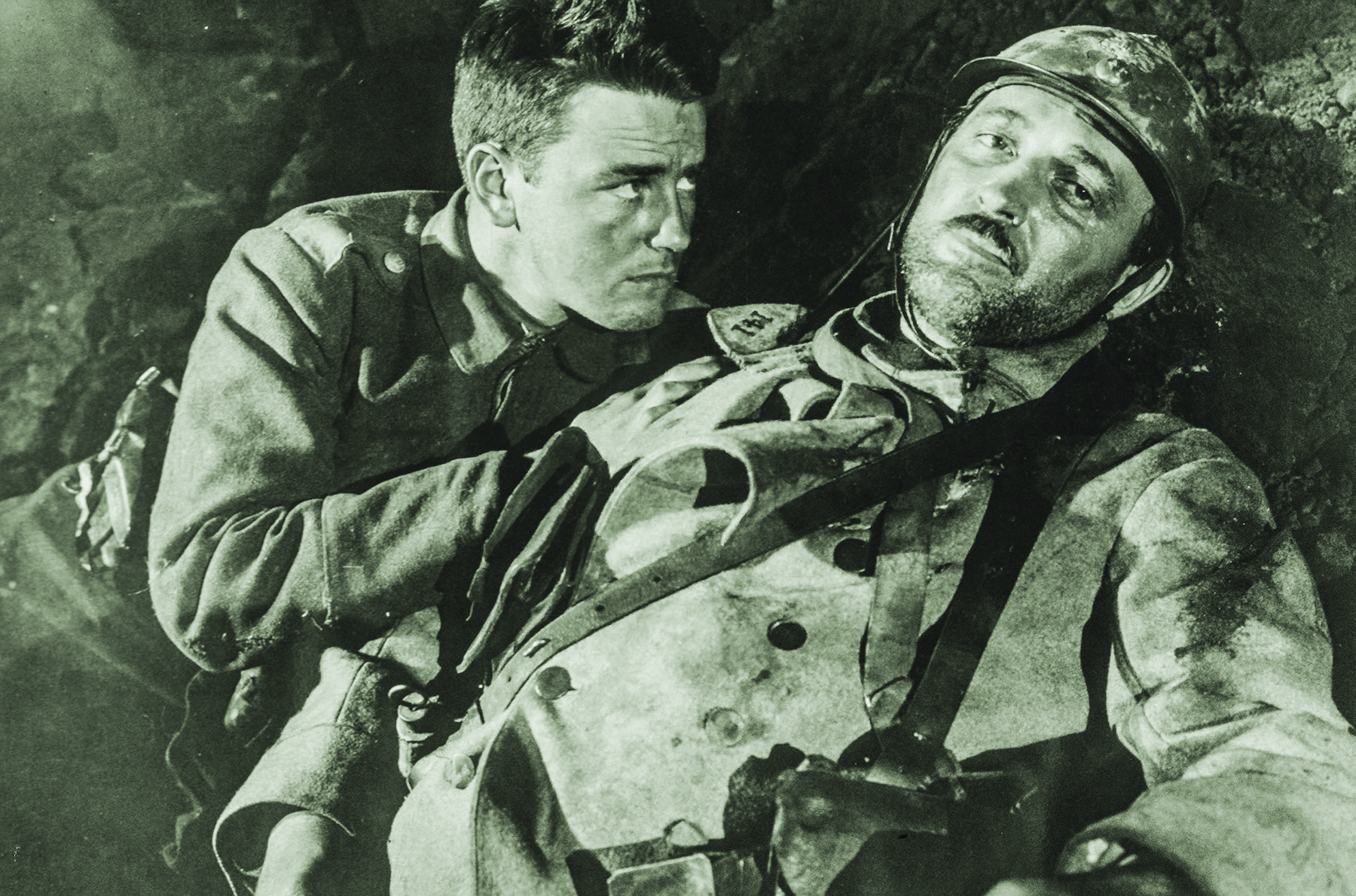All Quiet on the Western Front highlighted the futility of war, whereas the Nazis revered violent struggle
[dropcap]I[/dropcap]t is common to criticize the victors of the First World War for their failure to recognize the menace of Nazi Germany and strangle it while it was still in its early stages. It’s true that the statesmen of the Allied nations miscalculated badly, but underpinning those miscalculations was a pervasive belief that the Great War had been a massive mistake that destroyed a whole generation of youth to little purpose. No popular work of art illustrates this mindset more than the Hollywood film All Quiet on the Western Front, released in 1930 to great acclaim—including the Academy Award for Best Picture.
The film was so stark and powerful that decades later it would influence director Steven Spielberg when he made Saving Private Ryan, often considered the most realistic war movie ever made. Lewis Milestone, who directed All Quiet on the Western Front, used over 2,000 extras and acres of California ranchland, much of it blasted by dynamite to resemble the shell craters of No Man’s Land. At the film’s core is a German company made up of young men—most of them just high school students—who flock to the colors in 1914, convinced of the old lie, “It is sweet and fitting to die for one’s country.” All Quiet on the Western Front disabuses its audience of that belief at the very outset; the preface informs them, “This story is neither an accusation nor a confession, and least of all an adventure to those who stand face to face with it. It will try simply to tell of a generation of men who, even though they may have escaped its shells, were destroyed by the war….”
And the movie does just that. Seen primarily from character Paul Bäumer’s point of view (Lew Ayres), All Quiet on the Western Front portrays a group of soldiers whose lives consist almost entirely of mud, hunger, terror, wounds, and death. They have no idea of the reasons for the war nor the rationale for the things they must do—mostly fighting the French to seize or hold a few shell-blasted acres of farmland whose possession is meaningless. Soon they have more in common with their foes than with the civilians back home, who still embrace an outmoded belief in glory and victory and actually denounce Bäumer when he goes home on leave and tries to tell them the truth about the war.
Midway through the film, a scene occurs in which Bäumer plunges into a shell crater for safety, followed almost immediately by a French infantryman who does the same. Bäumer knifes him in self-defense, then spends a sleepless night hearing the mortally wounded soldier gasp for breath. Bäumer regrets what he has done, tries in vain to comfort the man, and promises to write his wife and take care of his children—all the while thinking aloud about the purposelessness of what is happening and acknowledging that the two of them could have been brothers. The moment is emblematic of the whole movie.
All Quiet on the Western Front was closely based on a bestselling novel published in 1929 by the German novelist Erich Maria Remarque. It quickly sold over a million copies, including 600,000 in Great Britain and 200,000 in the United States. One might have supposed that it would have been as well-received in Germany, the homeland of its author, but this was scarcely the case. While its message of war’s futility resonated among the victorious powers, it enraged the rising Nazi Party, which polled 6.4 million votes—18 percent of the total—in parliamentary elections held a few weeks before the film’s premiere in December 1930. The victory made the Nazis the second-largest political party in Germany. Both novel and film flew in the face of Nazi ideology, which insisted upon a heroic German army stabbed in the back by Jews and Communists and that celebrated violent struggle as a core value.
It wouldn’t be long before the Nazis threw 25,000 copies of the novel into bonfires and raided movie houses that showed the film, led in one case by Nazi propagandist Joseph Goebbels. Shouting “Judenfilm!,” Brownshirts threw sneezing powder into the air, hurled stink bombs from balconies, and released mice into theaters. They even attacked filmgoers who, in the Nazis’ frenzied appraisal, appeared to look Jewish. In 1933, shortly after Hitler took power, Remarque left his homeland in fear for his life, eventually becoming a naturalized U.S. citizen. Ten years later his younger sister Elfriede was seized by the Gestapo for allegedly making antiwar statements, tried in a People’s Court, and harangued by the judge: “Your brother is unfortunately beyond our reach—you, however, will not escape us.” She was beheaded in December 1943.
The contrast between the reaction to the film by the victors and vanquished could not have been more stark—and might have served as a warning that the Nazis had very different ideas about its meaning. ✯
This story was originally published in the October 2019 issue of World War II magazine. Subscribe here.





